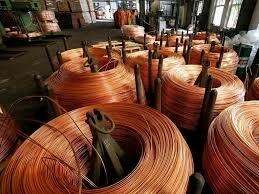By Jeff Mason and Steve Holland
WASHINGTON (Reuters) – China’s written response to U.S. demands for trade reforms is unlikely to trigger a breakthrough at talks between Presidents Donald Trump and Xi Jinping later this month, a senior Trump administration official told Reuters on Thursday.
Beijing provided the Trump administration with its document earlier this week, responding to a months-long request from U.S. officials to jumpstart trade talks, Reuters reported on Wednesday.
It was a good sign that Beijing had put something in writing after months of declining to do so, the official said, speaking to Reuters on condition of anonymity.
But the offer should be viewed with skepticism, the official said, in part because China has previously made promises on economic and trade reforms that it had not fulfilled.
China has previously offered to do more to loosen restrictions on the percentage of Chinese companies that U.S. firms are permitted to own, for example, but then had not followed up that pledge by providing licenses for U.S. companies.
U.S. officials were still studying the list, which the official said was received on Monday night.
The Chinese document included 142 items divided into three categories: issues the Chinese are willing to negotiate for further action, issues they are already working on and issues they consider off limits, the official said.
With much work to do to sort through the list and the G20 summit only two weeks away, the official played down expectations of a major breakthrough on substantiative issues on trade during talks between Trump and Xi at the gathering of world leaders in Argentina at the end of November.
A best-case scenario could be that the two leaders agreed to keep talking and declare the issue is moving in a better direction, the official said.
It was too early to tell whether China’s offer would be sufficient to preclude an increase in U.S. tariffs at the start of 2019, he said.
Trump has imposed tariffs on $250 billion of Chinese imports to force concessions from Beijing on the list of demands that would change the terms of trade between the two countries. China has responded with import tariffs on U.S. goods.
The tariff rate on $200 billion in Chinese goods is set to increase to 25 percent from 10 percent on Jan. 1.
Trump has also threatened to impose tariffs on all remaining Chinese imports, about $267 billion worth, if Beijing fails to address U.S. demands.
Fusion Media or anyone involved with Fusion Media will not accept any liability for loss or damage as a result of reliance on the information including data, quotes, charts and buy/sell signals contained within this website. Please be fully informed regarding the risks and costs associated with trading the financial markets, it is one of the riskiest investment forms possible.
Source: Investing.com



























